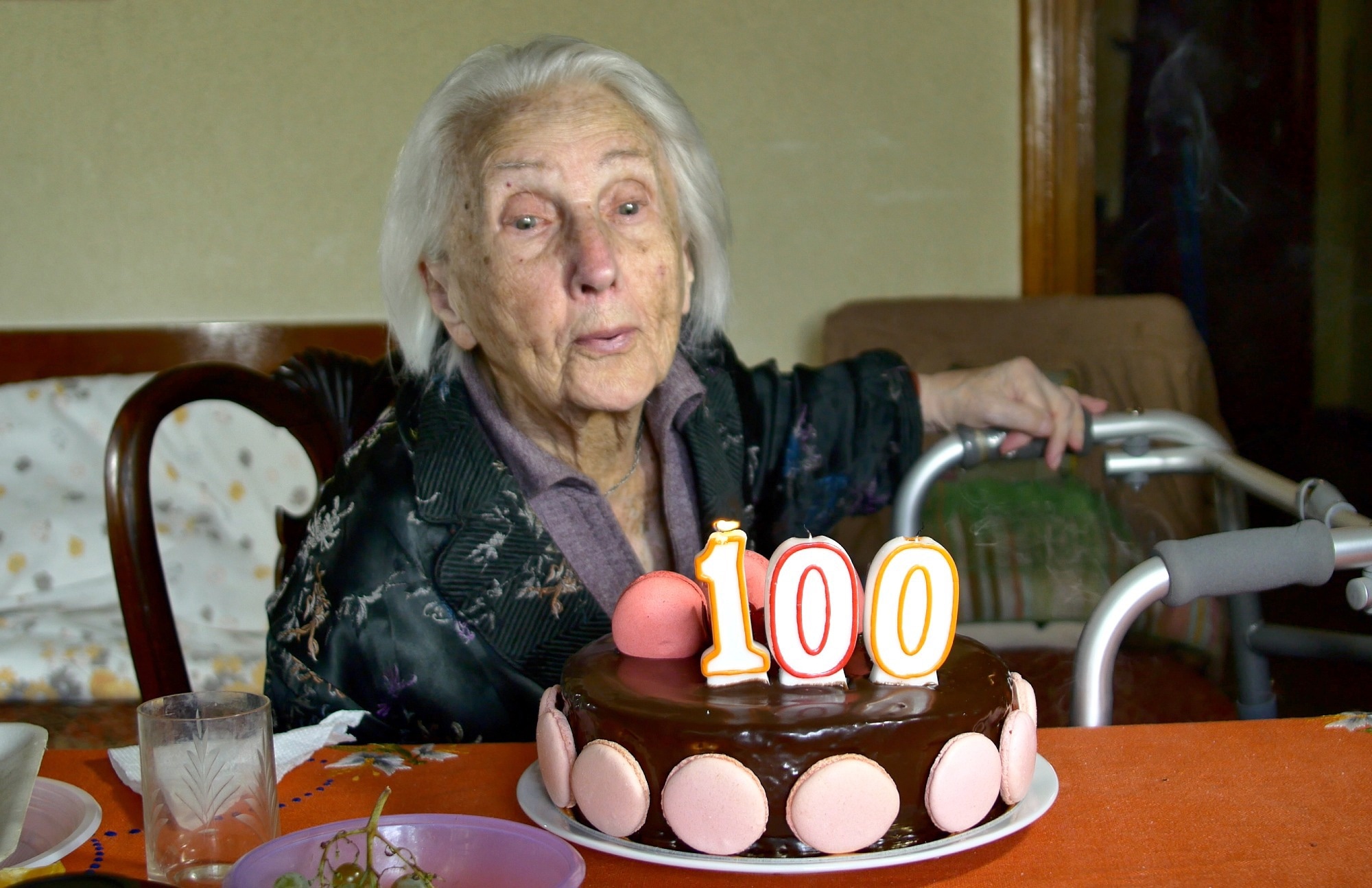An American child born in 1900 would live 46 to 48 years. Over 100 years later, life expectancies had risen dramatically. By 2014, women's life expectancy increased to 81 years, and men's increased to 76 years. There are now more centenarians, or people who live past the age of 100, than ever before. Researchers believe that centenarians live as long as they do because they can delay the symptoms of aging.
"Most of today's centenarians have survived past average life expectancy because they delayed the development of illness until nearer to the age of death, thus characterizing the compression of morbidity."
In this study, the authors reviewed the trends in factors affecting life expectancy and explored the lifestyle choices that may enable some people to live long past 100.
 Editorial: The Role of Healthy Diet and Lifestyle in Centenarians. Image Credit: Dan Negureanu / Shutterstock
Editorial: The Role of Healthy Diet and Lifestyle in Centenarians. Image Credit: Dan Negureanu / Shutterstock
An era of socioeconomic changes
Although the 20th century is known for the upheaval of the Great Depression, this was also a time when jobs and working conditions improved drastically. Better education meant that people were more informed about their health, while higher incomes enabled them to make choices that improved their quality of life. After the Second World War, the scale and effect of global conflicts reduced, also raising life expectancies.
Decline in infectious diseases
An important factor is the fall in morbidity and mortality attributed to infectious diseases such as typhoid and cholera, particularly in infants and children. Access to sanitation and clean water reduced the spread of pathogens, while mass vaccination campaigns have prevented diseases such as polio or smallpox.
Antibiotics and other medical advances meant that severe illnesses, both infectious and non-transmissible, could be treated more effectively. However, as infectious diseases declined, chronic and non-infectious diseases became more common. Diabetes and cardiovascular diseases are now the leading causes of death worldwide.
Rise in unhealthy habits and environmental risks
At the same time, many factors affected life expectancy adversely, counteracting the gains made through socioeconomic and medical developments. More people started smoking, and many adopted poor diets because of the wider availability of processed and sugary foods. Sedentary lifestyles also became more common. These were some reasons for the current rise in cancer and heart disease.
Unfortunately, many of the risk factors for non-infectious and chronic illness were environmental. People were also exposed to higher levels of environmental pollution, such as from automobiles. Deaths and injuries from car accidents also rose, and many died due to gun violence, murder, and drug overdose as well.
Why do some people live for so long?
Going beyond the systemic reasons why life expectancies change, it seems clear that some individuals live far longer than others. There may be some genetic basis for this: researchers have estimated that genes contribute 20-40% to life expectancy. However, other factors are also at play. Therefore, the experiences of centenarians may hold the key to helping more people stay healthy throughout their lives.
Centenarians form a larger part of the population in some parts of the world, such as Italy, Greece, Japan, and Costa Rica. Scientists call these areas blue zones and have found that they share some common characteristics – their inhabitants tend to follow healthier diets and are physically active, either for work or recreation. They also tend to have strong cultural and community values.
The role of diet has been studied in detail in many populations, such as people of Chinese, Japanese, and Mediterranean descent. A 60-year study of Okinawan people over 65 found that restricting calories was associated with a longer life and healthier aging in the long term. Healthy diets reduce the risk of some cancers, diabetes, and heart disease.
Reducing fat intake does not appear to have clear benefits in terms of heart health and diabetes, but reducing calorie and carbohydrate intake does. Mediterranean diets are known to be very beneficial for many reasons. Consuming more fresh fruits and vegetables is also a healthy choice, but vegetables preserved in salt are unhealthy.
Centenarians also remain physically active and adopt healthy habits throughout their lives. Exercise can reduce mortality risk by 27%, increase life expectancy by a little over one year, and improve cognitive function. On the other hand, smoking can hasten cognitive decline among centenarians.
Conclusion
As people age, they become affected by various chronic conditions, whether it is cataracts or heart issues. However, centenarians appear healthier, even at their advanced ages, than younger octogenarians and nonagenarians.
"Centenarians presented, in general, lower morbidity and treatment burden and lower use of both primary and hospital healthcare services than octogenarians and nonagenarians, suggesting a better health status."
Health promotion in aging populations with increasing non-communicable chronic diseases must encourage healthy habits, including exercise, social interaction, and a balanced diet. Medically, centenarians do not evade physiological decline or diseases related to old age. However, the rate of decline is slower in them and is counterbalanced by their higher resilience toward day-to-day stress.
This editorial review explored several factors contributing to longer life expectancy and found sufficient evidence for the vital role of lifestyle and diet changes in boosting life expectancy and attaining centenarian status. The researchers hope that future work will build upon these findings about increased life expectancy by studying centenarians and their diet and lifestyle.